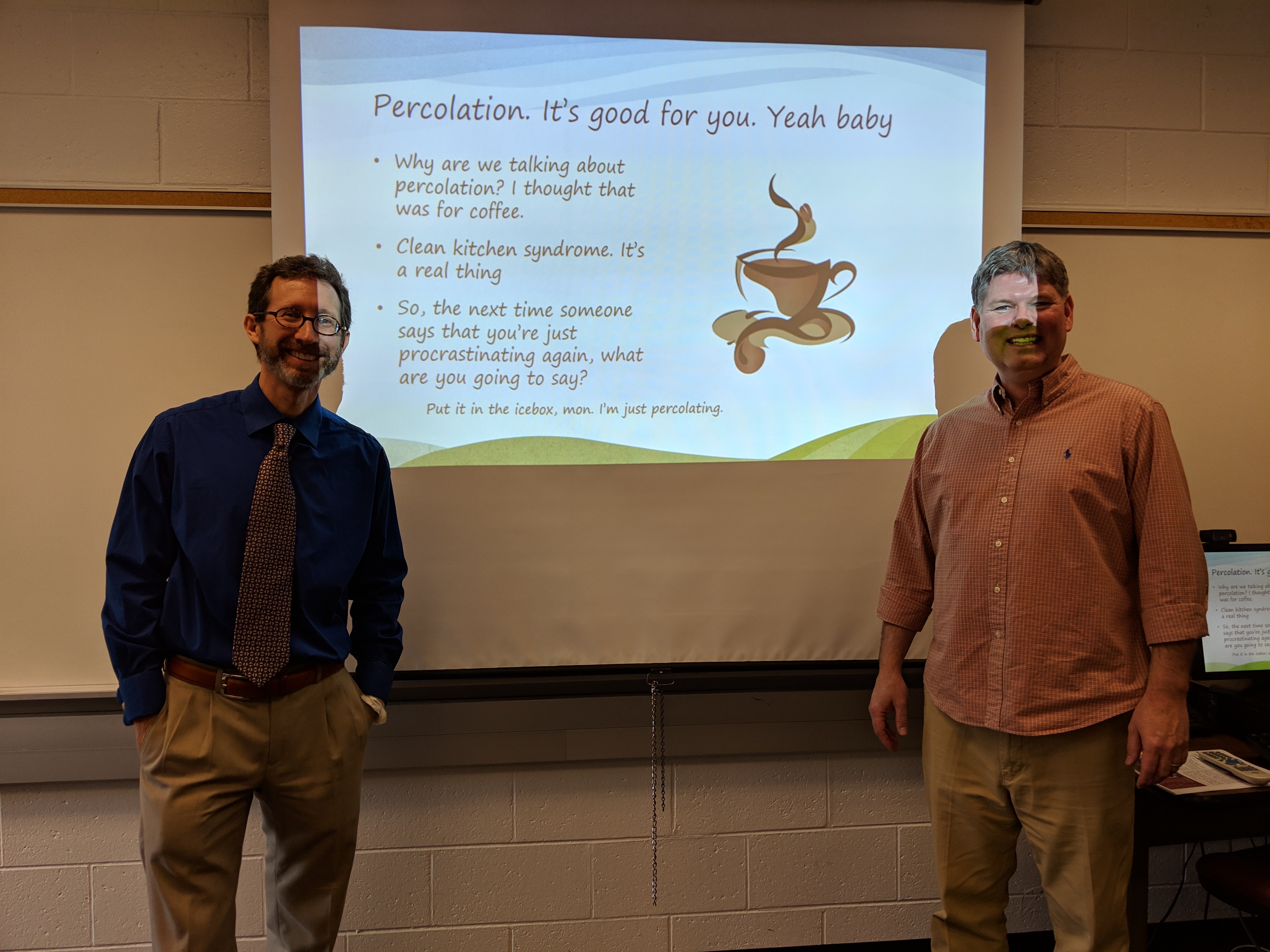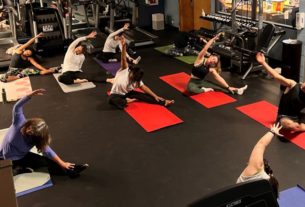
Reframing Procrastination for Success
Tiana Sigala, staff writer
Director of Academic Support Services Todd Parks and Director of Student Success and Retention David Lerman sat in a small room off of the Writing Center, ready with several piping hot pizzas and ice-cold sodas, to welcome students for a candid conversation about procrastination. They gathered to discuss right and wrong ways to procrastinate, as well as some changes of perspective regarding the subject.
In “Procrastination: How the Pros do it,” the hosts acknowledged a general negativity surrounding procrastination and spoke of their desire to change any negative connotations. Rather than giving tips on how to avoid procrastinating, the workshop focused on reframing it. Lerman posits that when procrastination is viewed as something closer to a personality trait rather than a negative action, one can more easily manage their tendencies toward it.
“If you think it’s not just a bad habit, then you can learn to work with it. It just takes time,” he said.
Speaking with students at PVCC, the word procrastination quickly summons up pejoratives such as lazy or unmotivated. Even objectively high-achieving students such as Elizabeth Valtierra, a full-time student and activist who currently holds multiple internship positions, nurses negative views of her own habit of procrastinating.
She said, “For me, it sometimes feels like I’m unmotivated, but there are times where you try to work and there’s really no creativity to stem off of.”
To Lerman, this is less the act of procrastination and more the act of “percolation.” He reasoned, if you begin a project and leave it alone for a period of time, the topic stays on your mind and you are working on it whether intentional or not.
“If you’ve started something, you’re not just procrastinating. If you have genuinely started it, and you work on it in your mind and go back to it, that’s percolation, and it can accomplish a lot of things,” Lerman said. This perspective shift allows a student to start their projects with intent to percolate and feel less guilt or stress over not having it done by a certain time.
He moved on to strategies to improve focus and productivity, including the one every person of the modern age has heard, put your phone away. “About 300 minutes,” Lerman said, “that’s how long college students say they’re on their phone each day. Think about all the time you could get back if you just put it away.” He suggested incremental separation from your mobile device starting with 15 or 20 minutes, and building from there.
He went on with some more common strategies, such as to-do lists, which by his own admission are not very exciting and groundbreaking in the way of focus strategies. “To-do lists sound really dry. They’re not sexy,” he joked, “but they work.”
Procrastination could use some rebranding, and the Student Success Office and the Academic Support Services department are ready to help students shed negative ideas and work efficiently despite labels. While workshops for the 2019 Spring semester have ended, more workshop information can be found at pvcc.edu/workshops.






